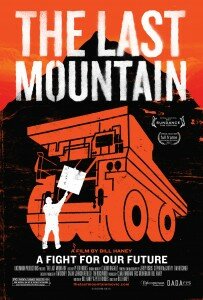 Fact: “Burning coal is the number one source of greenhouse gases worldwide.” It’s nothing new, that’s for sure. Deep pocketed big business exploiting the planet, funneling funds to politicians and casually silencing local – and legitimate – opposition. We’ve seen entitlement and greed rear their ugly heads in history on countless occasions, with a high concentration of offenses in recent time. The forthcoming documentary The Last Mountain, which in June opens in select theaters across the country, is to coal as GASLAND is to gas, Inside Job is to Wall Street and Forks Over Knives is to factory farming and modern day agriculture. Translation: is a must-see exposé for every single solitary American.
Fact: “Burning coal is the number one source of greenhouse gases worldwide.” It’s nothing new, that’s for sure. Deep pocketed big business exploiting the planet, funneling funds to politicians and casually silencing local – and legitimate – opposition. We’ve seen entitlement and greed rear their ugly heads in history on countless occasions, with a high concentration of offenses in recent time. The forthcoming documentary The Last Mountain, which in June opens in select theaters across the country, is to coal as GASLAND is to gas, Inside Job is to Wall Street and Forks Over Knives is to factory farming and modern day agriculture. Translation: is a must-see exposé for every single solitary American.
I had the privilege of attending an advance screening Monday evening at Manhattan’s SoHo House, as part of their important – and popular – React to Film series. The House held back-to-back viewings in the cinema, each presentation followed by a Q&A with producer Clara Bingham. The intimate space, at least for the later showing that I was at, was packed to the gills, eager club members vying for seats. Some attendees, rather than departing in disappointment, opted to occupy available floor space. That’s how much seeing this film meant to them. And with good reason.
Despite the misleading message, there is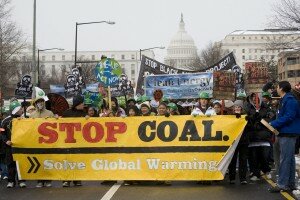 no such thing as “clean coal.” (It’s about as clean as “natural gas” is natural.) This significant film provides an unwavering argument against Big Coal. Several in fact. While we all know a thing or two about the topic, for me, I was enlightened. I was blind but now I see. I knew coal was bad, in the abstract. But this movie helps make concrete the state of emergency we’re really in. And by “we” I mean all of us. From coast to coast, top to bottom. We are in this battle for the planet together. This war on special interests and corporate conspiracy. The notion (and trend) that the big guy pays to play while the little guy is crushed, most especially his spirit. But not so for the ordinary folks in West Virginia, specifically in the valleys of Appalachia, where the majority of the film’s footage is from. There, small towns are mobilizing and individual but organized, passionate and enraged citizens are taking on the big bad biz where government and its agencies fail or refuse to.
no such thing as “clean coal.” (It’s about as clean as “natural gas” is natural.) This significant film provides an unwavering argument against Big Coal. Several in fact. While we all know a thing or two about the topic, for me, I was enlightened. I was blind but now I see. I knew coal was bad, in the abstract. But this movie helps make concrete the state of emergency we’re really in. And by “we” I mean all of us. From coast to coast, top to bottom. We are in this battle for the planet together. This war on special interests and corporate conspiracy. The notion (and trend) that the big guy pays to play while the little guy is crushed, most especially his spirit. But not so for the ordinary folks in West Virginia, specifically in the valleys of Appalachia, where the majority of the film’s footage is from. There, small towns are mobilizing and individual but organized, passionate and enraged citizens are taking on the big bad biz where government and its agencies fail or refuse to.
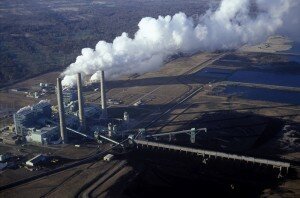 The Last Mountain stops at nothing to tell a compelling and fact-backed story, complete with staggering statistics and a handsome hero, Robert F. Kennedy Jr.. Chief Prosecuting Attorney for Hudson Riverkeeper, President of the Waterkeeper Alliance and Senior Attorney for the Natural Resources Defense Council, his presence lends still more urgency to an already dire situation. Our water and air, lungs and livelihoods, among myriad other things, are in peril. This is serious business. With an emphasis on business. Kennedy is one among many real life “characters” whom we get to know throughout the doc.
The Last Mountain stops at nothing to tell a compelling and fact-backed story, complete with staggering statistics and a handsome hero, Robert F. Kennedy Jr.. Chief Prosecuting Attorney for Hudson Riverkeeper, President of the Waterkeeper Alliance and Senior Attorney for the Natural Resources Defense Council, his presence lends still more urgency to an already dire situation. Our water and air, lungs and livelihoods, among myriad other things, are in peril. This is serious business. With an emphasis on business. Kennedy is one among many real life “characters” whom we get to know throughout the doc.
The Last Mountain is a film about rescuing the Earth, but more than that it seems to be about fighting for what’s right. A critical plea for democracy. A genuine embrace of the all-too-true aphorism that “We don’t inherit the planet from our parents; we borrow it from our children.” The threat that coal mining poses to residents’ safety and well being, which is considerable, pales in comparison to the unknown but predictable – and anticipatable – future if this pillaging of the planet persists. Among the culprits are Massey Energy and its sister offenders, but also everyone from the EPA all the way to the White House. Shocker.
Says director Bill Haney, “The coal industry detonates 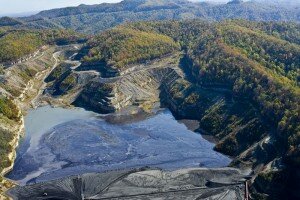 [mountaintops with] the explosive power of a Hiroshima bomb each and every week, shredding timeless landscape to bring coal wealth to a few, and leaving devastated communities and poisoned water to many.” Hiroshima?! We are not long for this world at this rate, a fast-paced and profit-driven immediate payday that disregards developments in clean energy and, on top of turning a blind eye to protesters, actually works against its own as well. The CEO of the film’s villain, Massey, who retired not to long ago as a multi-millionaire, busted unions, demanding seemingly endless days for little compensation or security. Here’s a scary stat: “In the last 30 years the coal industry in West Virginia has increased production by 140% while eliminating more than 40,000 jobs.” Marinate on that if you think the industry is a family-friendly, job-stimulating, community-fostering entity.
[mountaintops with] the explosive power of a Hiroshima bomb each and every week, shredding timeless landscape to bring coal wealth to a few, and leaving devastated communities and poisoned water to many.” Hiroshima?! We are not long for this world at this rate, a fast-paced and profit-driven immediate payday that disregards developments in clean energy and, on top of turning a blind eye to protesters, actually works against its own as well. The CEO of the film’s villain, Massey, who retired not to long ago as a multi-millionaire, busted unions, demanding seemingly endless days for little compensation or security. Here’s a scary stat: “In the last 30 years the coal industry in West Virginia has increased production by 140% while eliminating more than 40,000 jobs.” Marinate on that if you think the industry is a family-friendly, job-stimulating, community-fostering entity.
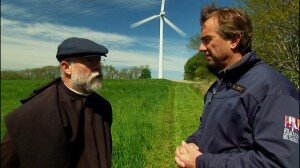 Alternatively, The Last Mountain doesn’t just share special stories of people young and old, hailing from near and far, risking it all to make a dent in Massey’s mountaintop obliteration progress, it offers solutions. Alternatives. Think wind energy. It’s true, we’re an energy-hungry country and growing more so by the day. But we needn’t rest our laurels on fossil fuels. Coal and gas helped perpetuate mankind and develop the bustling world we live in, but they needn’t take us any farther. We’ve reached a point where we can relinquish our reliance on what should be former methods of obtaining electricity. Thank you, coal and gas, for assisting in getting us this far, but it’s time to part ways and adopt methods that are sustainable. That help the planet rather than hurt it. And, get this, the notion isn’t some hippie ideal without any economic consideration; “The Wind Industry operates more than 35,000 turbines and employs 85,000 people in the U.S. – the same number the coal industry employs.” Green energy creates jobs and not only promotes the present market, it also paves the way for a more viable market down the road.
Alternatively, The Last Mountain doesn’t just share special stories of people young and old, hailing from near and far, risking it all to make a dent in Massey’s mountaintop obliteration progress, it offers solutions. Alternatives. Think wind energy. It’s true, we’re an energy-hungry country and growing more so by the day. But we needn’t rest our laurels on fossil fuels. Coal and gas helped perpetuate mankind and develop the bustling world we live in, but they needn’t take us any farther. We’ve reached a point where we can relinquish our reliance on what should be former methods of obtaining electricity. Thank you, coal and gas, for assisting in getting us this far, but it’s time to part ways and adopt methods that are sustainable. That help the planet rather than hurt it. And, get this, the notion isn’t some hippie ideal without any economic consideration; “The Wind Industry operates more than 35,000 turbines and employs 85,000 people in the U.S. – the same number the coal industry employs.” Green energy creates jobs and not only promotes the present market, it also paves the way for a more viable market down the road.
Bottom line? Prepare to make a date to see this flick.  If for no other reason than to be blown away. Better yet, take action. Spread the word far and wide and, if you don’t happen to reside where The Last Mountain is headed, let the filmmakers know where you want to see it screened. The official website offers still more ways you can help advocate for the cause, which impacts not only those portrayed in the film, but every one of us. If you flip a switch and a light comes on, you’re part of this. And you may be nearer than you think to the consequences of the devastating endeavor we call coal mining. Think tumors, cancer, autism, asthma, etc.. As someone in the film states, passports don’t apply to airborne and waterborne toxins.
If for no other reason than to be blown away. Better yet, take action. Spread the word far and wide and, if you don’t happen to reside where The Last Mountain is headed, let the filmmakers know where you want to see it screened. The official website offers still more ways you can help advocate for the cause, which impacts not only those portrayed in the film, but every one of us. If you flip a switch and a light comes on, you’re part of this. And you may be nearer than you think to the consequences of the devastating endeavor we call coal mining. Think tumors, cancer, autism, asthma, etc.. As someone in the film states, passports don’t apply to airborne and waterborne toxins.
So, see this movie. And, if you haven’t yet, rent GASLAND for good measure, too.
P.S. This doesn’t even come close to scratching the multi-faceted surface of this superbly executed film. So many more people to meet, figures to fear, battles to fight. Tip of the iceberg, my friends, tip of the iceberg.
Great coverage, Nell. This is one of many serious issues that are tearing apart our globe about which we need to educate ourselves and inform others, and against which we need to take a stand.